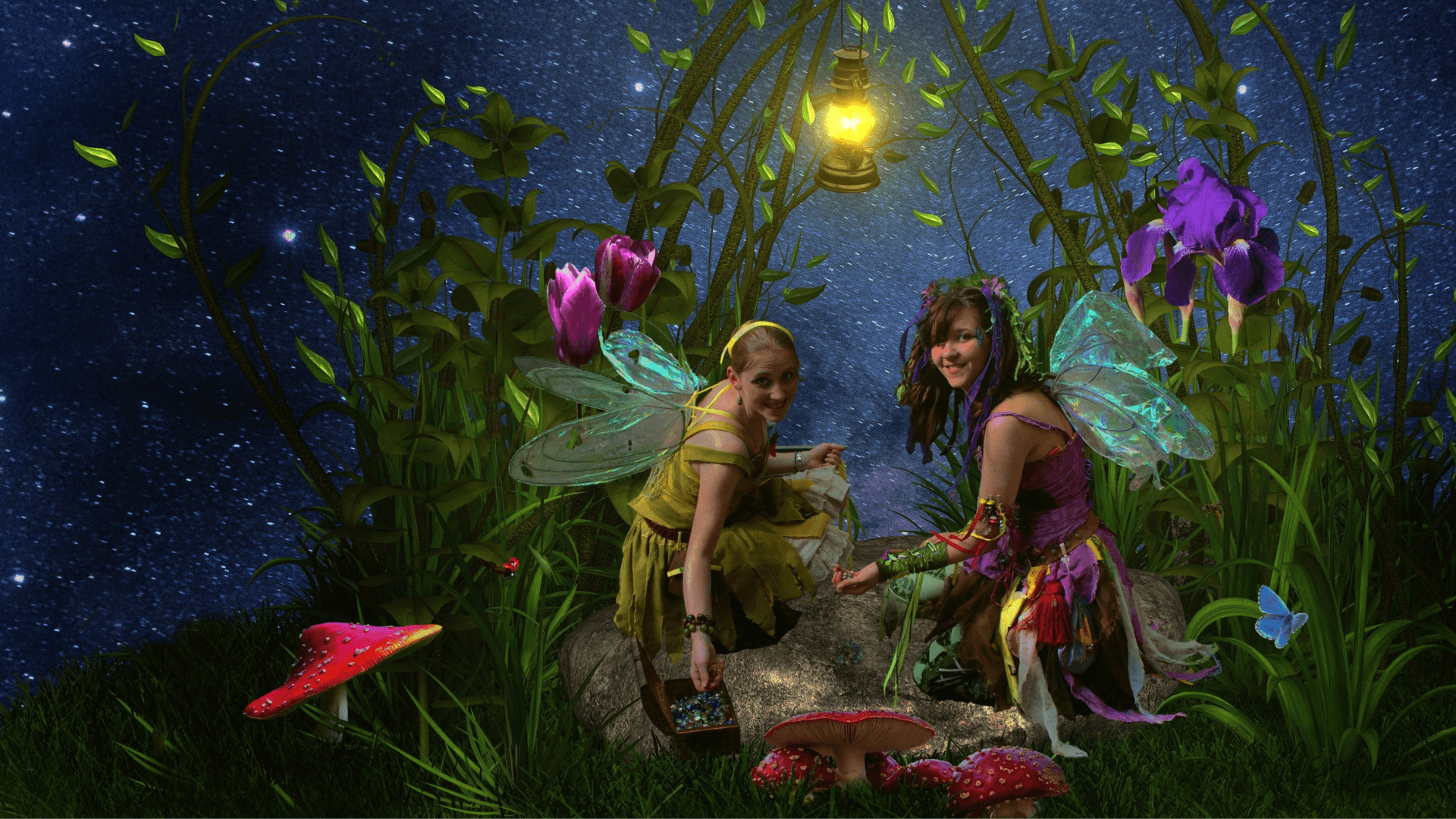
The Full Guide to ISTJ Cognitive Functions: SiTe Decoded
ISTJ cognitive functions refer to the mental activities that shape the personality traits and thought processes all ISTJs (Logisticians) share. Understanding them can not only raise your self-awareness but also help you tap into your full potential.
If you’re like most ISTJs, though, you’d probably rather avoid dealing with abstract concepts and get to the core of things as quickly as possible. Don’t worry—it’s possible to learn about this topic without delving too much into theory and abstraction.
In this article, you’ll find ISTJ cognitive functions explained in a plain, to-the-point manner. Let’s get started!
Key Takeaways
- Cognitive functions are eight distinct internal processes that determine our personality type.
- ISTJ cognitive functions are Si, Te, Fi, Ne (primary) and Se, Ti, Fe, Ni (shadow).
- ISTJ personality development involves three key phases: the emergence of Si as the dominant function, the development of Te, Fi, and Ne, and the complete integration of all four cognitive functions.
- As Si-Te users, ISTJs may not be emotionally open in their interpersonal relationships, but they are fiercely loyal and dependable.
What Are Cognitive Functions?
Cognitive functions are mental processes that define how our minds work. There’s a total of eight distinct cognitive functions, which can be split into two groups:
- Perceiving functions. These encompass sensing and intuition, which determine how we absorb and process information from the external world.
- Judging functions. These refer to thinking and feeling functions, which shape our decision-making process.
Each of these judging and perceiving functions can be either introverted (directed inward and focused on our inner world) or extraverted (directed outward and connected to the external world).
While every person can access all eight cognitive functions, some of these functions come more naturally to us than others. Your four strongest functions—also known as your primary cognitive functions—make up your cognitive function stack, determining your personality type.
Meanwhile, the other four functions are known as shadow functions, as they lie in the unconscious mind—the deepest layer of the human psyche.
The 4 Primary ISTJ Cognitive Functions
The ISTJ cognitive function stack is comprised of the four primary functions that define the Logistician personality type, which are:
- Introverted sensing (Si)
- Extraverted thinking (Te)
- Introverted feeling (Fi)
- Extraverted intuition (Ne)
Introverted Sensing (Si)
Introverted sensing is the dominant ISTJ function. This means it is their most well-developed function, as well as the most impactful one.
Si processes new information by comparing it with the information stored in their mental database.
In other words, even though ISTJs take in information through their senses, they don’t simply take it at face value. Instead, they see how it compares to their past experiences, memories, etc. Subjective impressions play a critical role in the way they understand the world.
Since drawing comparisons between past and current data comes naturally to Logisticians, they tend to be very attentive to detail and quickly notice changes around them. If you leave a cup where it’s not supposed to be, you can rest assured they won’t walk past it without noticing it!
Moreover, ISTJs are strongly connected to the past, which is why they have a reputation for being rather traditional. They find comfort in familiarity and seek to lead predictable, orderly lives.
For this reason, they might struggle to embrace change—especially if it serves no practical purpose.
Extraverted Thinking (Te)
ISTJs use extraverted thinking—their auxiliary cognitive function—to make decisions. Since it is their first extraverted function, it also largely affects the impression Logisticians leave on other people.
When making decisions, ISTJs prioritize reason and objective data like facts and statistics over feelings, emotions, and values. Their decision-making process is simple and efficient; they’d rather get things going than mull things over.
As auxiliary Te users, Logisticians have a knack for organization and excel at bringing structure to chaos. They also tend to be ambitious and often have high expectations for themselves, especially when it comes to careers.
Te also endows these introverts with a talent for leadership. Though they may shy away from the spotlight, their direct communication style, clear expectations, decisiveness, and organizational skills make them remarkable leaders. However, their objectivity and no-nonsense attitude can make them come off as cold and impersonal.
Introverted Feeling (Fi)
Introverted feeling is the tertiary ISTJ cognitive function, so Logisticians may also struggle to master it until later in life. Healthy use of Fi is generally a sign of emotional maturity in ISTJs.
Fi is centered around personal values, beliefs, principles, and morals. Even though this function takes a relatively low position in their cognitive function stack, ISTJs tend to have strong values.
However, the inward direction of their feeling function determines that ISTJs generally prefer keeping their feelings to themselves. This lack of emotional expression, coupled with their bluntness, can lead others to perceive them as cold-hearted or uncaring, though this couldn’t be further from the truth.
Although Logisticians care deeply about their loved ones and are very protective of them, they may have trouble finding common ground with people who differ from them.
Developing Fi, however, allows ISTJs to become more compassionate. In turn, it can help them respect people’s individuality and accept them as they are—even if they lead completely different lives or hold opposite beliefs.
Extraverted Intuition (Ne)
Extraverted intuition is the inferior cognitive function of ISTJs. As such, Logisticians can only access it for a short time—if they use it for too long, they can get drained or overwhelmed.
Ne is concerned with abstraction, possibilities, and ideas. While brainstorming may not be ISTJs’ strongest suit, they may sometimes experience epiphanies.
Still, Ne is their weakest function, so they may find it challenging to come up with ideas without drawing inspiration from the past. As such, they may not be the best at generating innovative business or project concepts.
Ne also blesses ISTJs with curiosity, so it’s not unusual for them to cultivate diverse hobbies and interests, such as drawing, playing chess, etc.
The 4 Shadow ISTJ Cognitive Functions
Ever wondered what the shadow of the ISTJ personality type looks like?
Exploring their shadow cognitive functions is a great place to start. These include:
- Extraverted sensing (Se)
- Introverted thinking (Ti)
- Extraverted feeling (Fe)
- Introverted intuition (Ni)
Extraverted Sensing (Se)
Unlike Si, extraverted sensing is directed outward, which is why it is known as ISTJs’ Opposing Role.
Se is fixated on the here and now and open to new experiences, which can be challenging for ISTJs.
While they can use this function and may sometimes act spontaneously, it feels neither natural nor enjoyable to them. If anything, channeling their Se can make them rather uncomfortable, as it disrupts their orderly life.
Se often manifests in ISTJs in times of stress. They are prone to impulsivity when they feel like they’re losing control of the situation.
Introverted Thinking (Ti)
ISTJs experience introverted thinking as the Critical Parent, meaning it often comes out when they feel defensive or ashamed, rubbing salt into the wound.
Logisticians’ auxiliary Te aims to make efficient decisions, create step-by-step plans, and take action. By contrast, Ti invites us to dive into deep analysis and understand the logic behind things before proceeding with them.
However, ISTJs see no point in spending—or rather wasting—time on this. This can then lead them to miss out on important details or suddenly realize their plans, ideas, or projects lack logical consistency. This often sparks off self-criticism, though sometimes they might also judge others for this.
Extraverted Feeling (Fe)
Extraverted feeling plays the role of the Trickster in the ISTJ cognitive function stack. As such, Logisticians tend to perceive displays of Fe as manipulative, fake,and devious rather than genuine. This is because they themselves don’t feel comfortable displaying it, as their instinct is to maintain a stoic disposition at all times.
Fe is connected to empathy, thoughtfulness, and the desire to live in harmony with others.
When the situation calls for them to tap into their Fe, ISTJs feel awkward and don’t always know how to handle it. Because of this, they may resort to sarcasm or immature jokes; genuinely expressing Fe feels foreign to them.
Introverted Intuition (Ni)
Introverted intuition, which concerns the abstract, symbolic, and hidden, is the most unconscious cognitive function of ISTJs. They have little to no access to it.
Because of their Demon Ni, ISTJs can get so caught up in following specific routines that they forget to take a bird’s-eye look at their lives once in a while. In turn, they may hinder their own personal growth by getting stuck in their comfort zone and passing up opportunities for improvement.
Also, Logisticians may struggle with catastrophic thinking when they’re extremely stressed or deeply ashamed.
How Cognitive Functions Affect Personality Development in ISTJs?
ISTJ cognitive functions develop throughout their lives, gradually shaping Logisticians’ characters. Let’s see how this unfolds:
First Personality Development Phase
The first ISTJ personality development phase begins at birth and lasts up until they enter their 20s. At this time, Si begins to emerge and establish itself as the dominant function.
As children, ISTJs enjoy observing the environment and reflecting on their impressions and experiences. Because they spend much of their time collecting external data and categorizing it in their minds, they tend to be rather quiet.
During this time, ISTJs might also start developing their auxiliary Te. They may begin to form strong opinions about things and pay more attention to facts and other objective data.
Second Personality Development Phase
After completing the first personality development phase, ISTJs continue to strengthen their auxiliary Te.
At the same time, they may experience the emergence of inferior Ne. Though this may drive them to seek out new activities and interests, their dominant Si may prompt them to do so cautiously.
Their tertiary Fi may also become more prominent during this stage, helping them become more considerate of others.
Third Personality Development Phase
The third and final ISTJ personality development phase involves the integration of all their primary cognitive functions. This takes effort and dedication, so not all ISTJs are lucky enough to achieve this.
As they learn to harness their Fi and Ne, ISTJs grow into themselves and develop well-rounded personalities. By shedding preconceived notions, they become more open-minded and open-hearted. This brings a sense of fulfillment and helps them unleash their full potential.
ISTJs and Interaction in Different Relationships
Logisticians’ compatibility and relationships with others are closely connected to their cognitive functions.
So, let’s discuss the role these mental mechanisms play in their parenting approach, friendships, and romantic relationships:
ISTJs as Parents
As parents, ISTJs are consistent, responsible, and dedicated. As Si-Te users, they typically believe in the importance of maintaining boundaries and preserving hierarchy in parent-children relationships. Though their children may not consider Logisticians their best friends, they know they can always rely on them for guidance and advice.
Their auxiliary Te may drive ISTJs to impose strict rules and high standards on their children. Although this can help their kids develop discipline, it might also limit their creativity and self-expression, which could lead to rebellion.
Also, due to their fairly weak Fi, Logisticians are prone to paying too little attention to their children’s emotional needs and development.
ISTJs as Friends
As friends, ISTJs are dependable, trustworthy, and loyal. Though their circle of friends tends to be small, their friendships often last a lifetime.
The Si-Fi combination can make Logisticians rather sentimental, even though they may not want to admit it. Unsurprisingly, they’re more inclined to maintain old friendships than to start new ones.
Moreover, ISTJs always encourage their friends to rely on them and go to great lengths to help them. As kind as they are to the select few they consider their friends, they can also be extremely blunt. “Honesty is the best policy” might as well be the motto of strong Te users, so it’s only natural that ISTJs don’t withhold the truth from their friends!
ISTJs as Romantic Partners
As romantic partners, ISTJs are devoted, reliable, attentive, and honest. Guided by dominant Si and auxiliary Te, they approach romantic matters with a sense of cautiousness and a rational mindset. Because of this, they don’t usually rush into relationships.
Since tertiary Fi may cause ISTJs to be emotionally guarded, they typically make their significant others feel loved through actions and physical affection.
Although Logisticians may not be the most exciting or spontaneous romantic partners, their desire to avoid change and chaos has a major benefit. They work consistently to build happy, long-lasting relationships where both partners feel loved, safe, and respected.
Final Thoughts
Getting familiar with the ISTJ cognitive functions—both primary and shadow ones—is key to understanding why you are the way you are. This can also give you some pointers as to which aspects of your personality could use a little improvement.
ISTJs are often called the backbone of society. The truth is, they wouldn’t have this deep sense of responsibility, duty, and dedication if they had different cognitive functions.
However, as an ISTJ, you can sabotage your personal growth by staying within the limits of your comfort zone and only exercising those functions that feel the most natural to you. To avoid developing unhealthy traits and become the best version of yourself, don’t forget to foster your weaker functions, too!
















